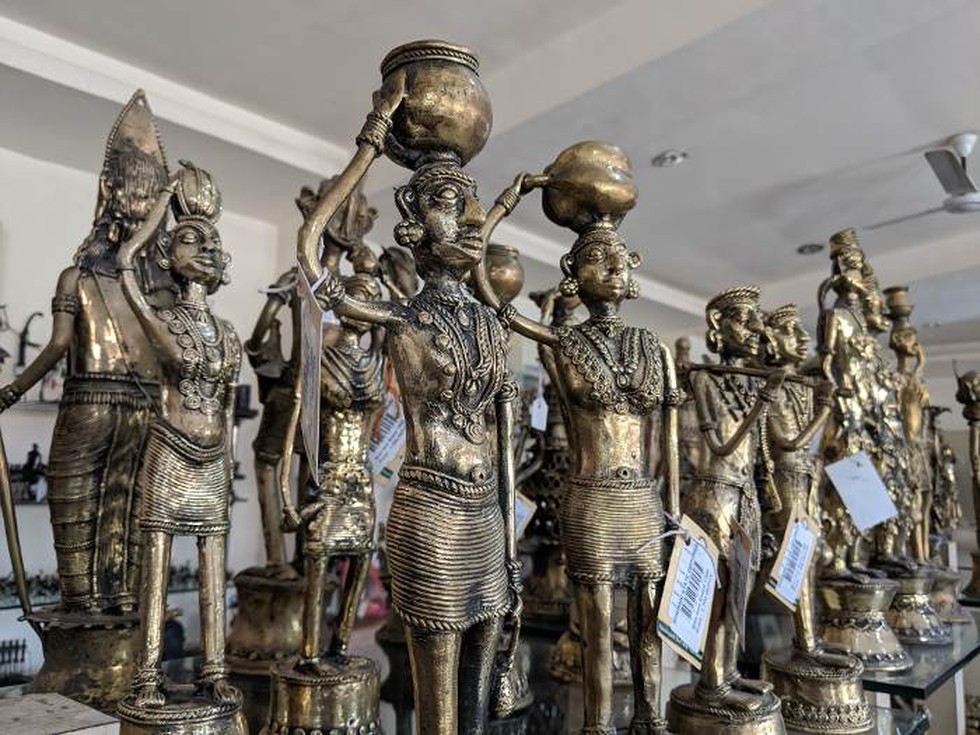About Dhokra Shilpkala:
- The word "Dhokra" is believed to be derived from the Dhokra Damar tribes, who are the traditional metal smiths of Central India.
- The origins of Dhokra Shilpkala can be traced back to the tribal communities residing in the regions of Chhattisgarh, Jharkhand, West Bengal, and Odisha, where it evolved as an integral part of their cultural and religious practices.
- Technique and Process: What sets Dhokra Shilpkala apart is its remarkable technique of metal casting, which involves using the lost wax casting method, also known as cire perdue.
- Artistry and Designs:
- Its design has rustic charm and the organic nature of its designs.
- Artisans draw inspiration from nature, mythology, and everyday life, incorporating motifs such as animals, birds, deities, and tribal symbols into their creations.
- From miniature figurines and jewellery to larger-than-life sculptures and functional objects, Dhokra Shilpkala encompasses a wide range of artistic expressions.
- Issues: The rapid pace of urbanisation, coupled with the rise of mechanised production techniques, has threatened the livelihoods of traditional artisans and endangered this ancient craft.
What is the Lost wax method?
- The process begins with the creation of a clay core, which serves as the base for the final metal sculpture.
- Artisans then coat this clay core with a layer of beeswax, meticulously sculpting the intricate designs and patterns by hand.
- Once the wax model is complete, it is covered with layers of clay, forming a mould around the wax pattern.
- The entire structure is then heated, allowing the wax to melt and drain out, leaving behind a cavity in the shape of the original sculpture.
- Molten metal, typically a combination of brass and bronze, is poured into this cavity, filling the space left by the melted wax.
- After cooling and solidifying, the clay mould is broken away, revealing the final metal casting.
